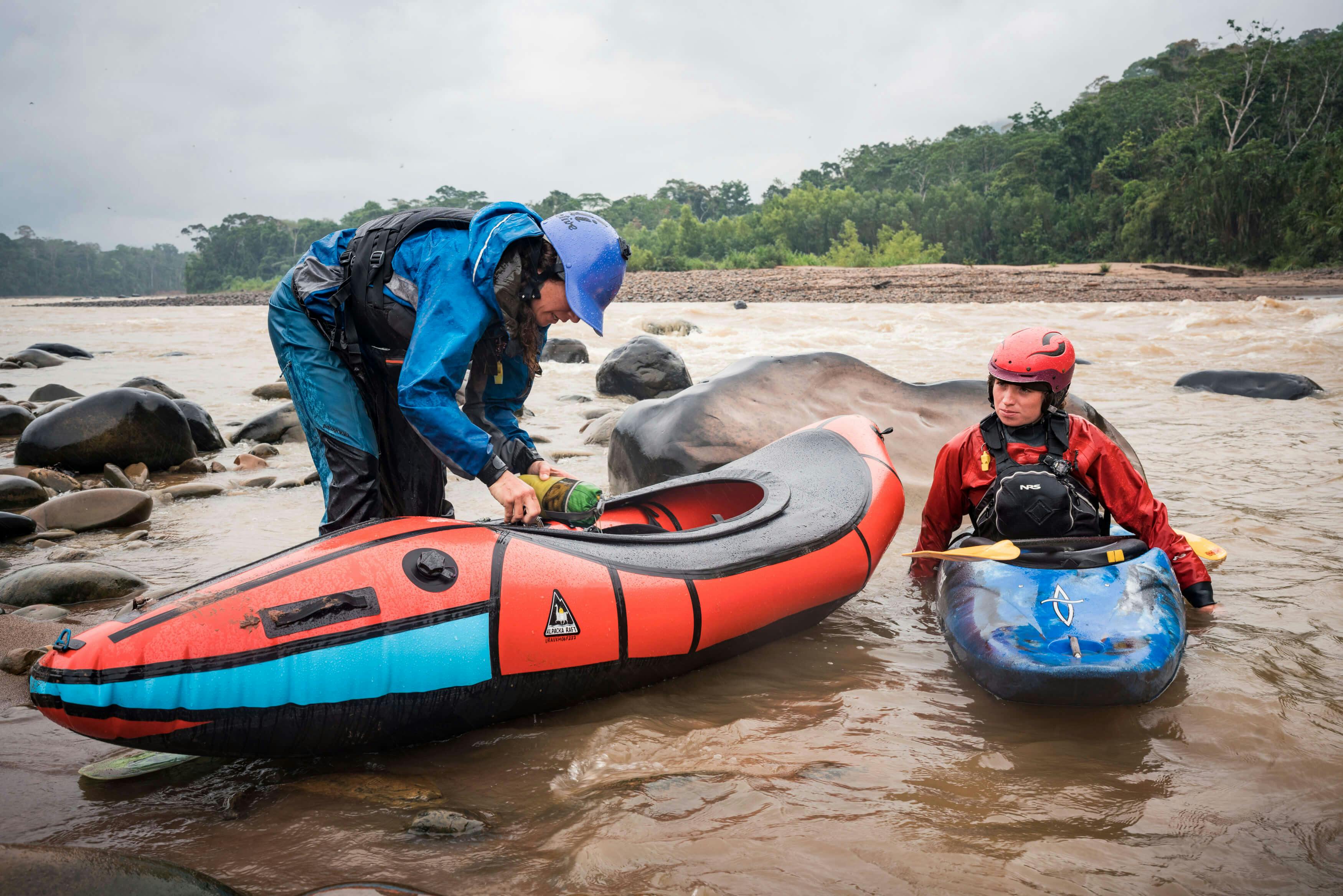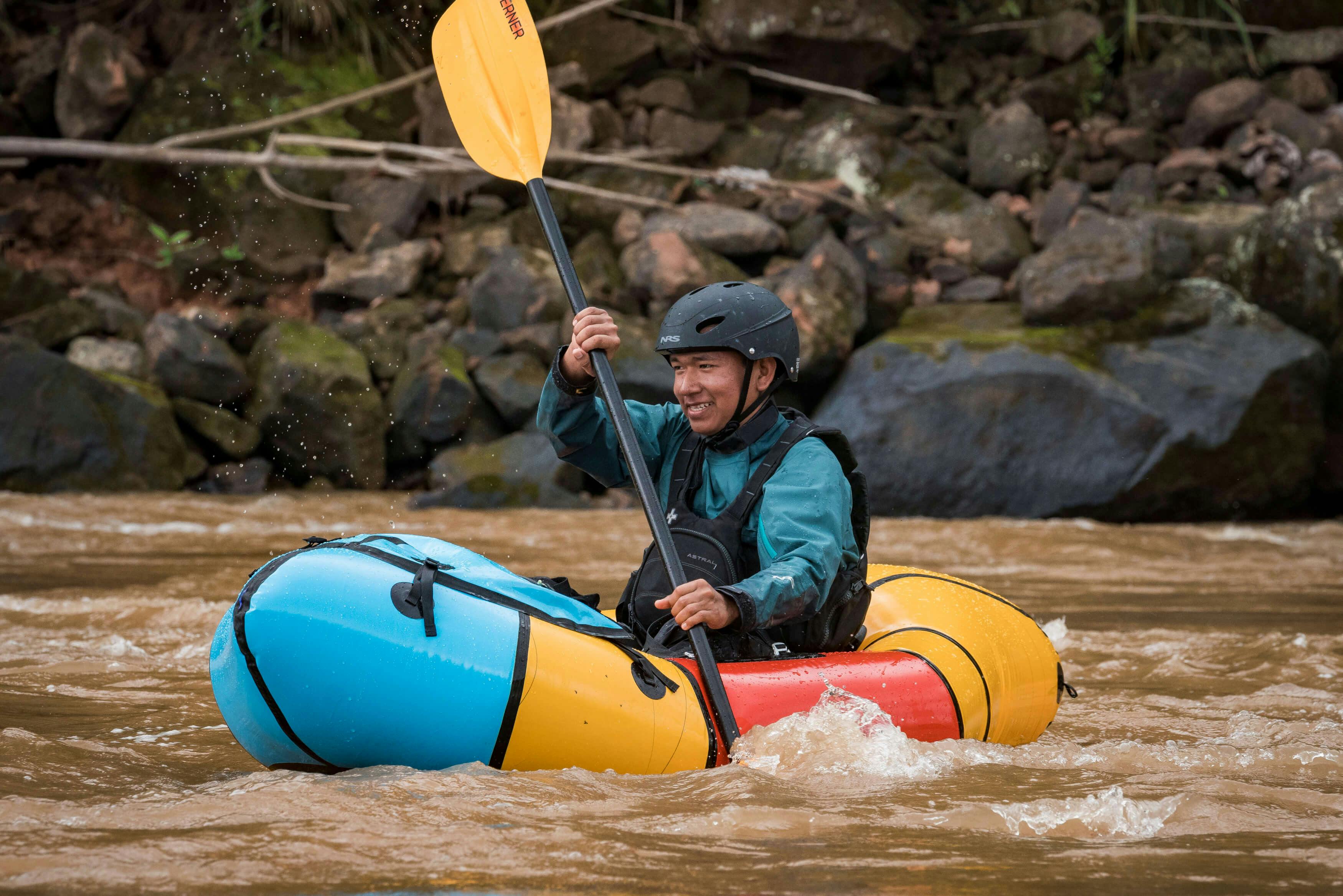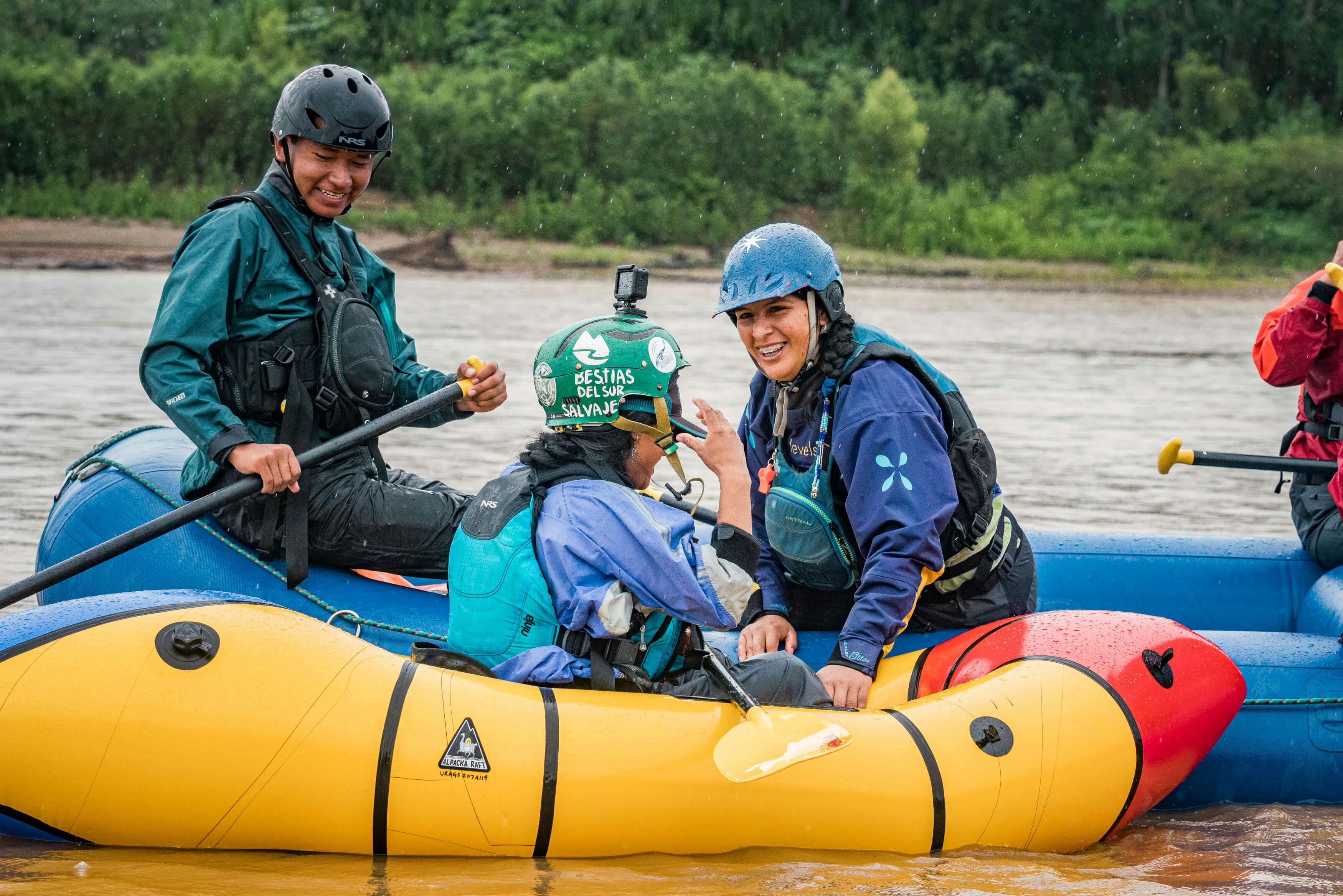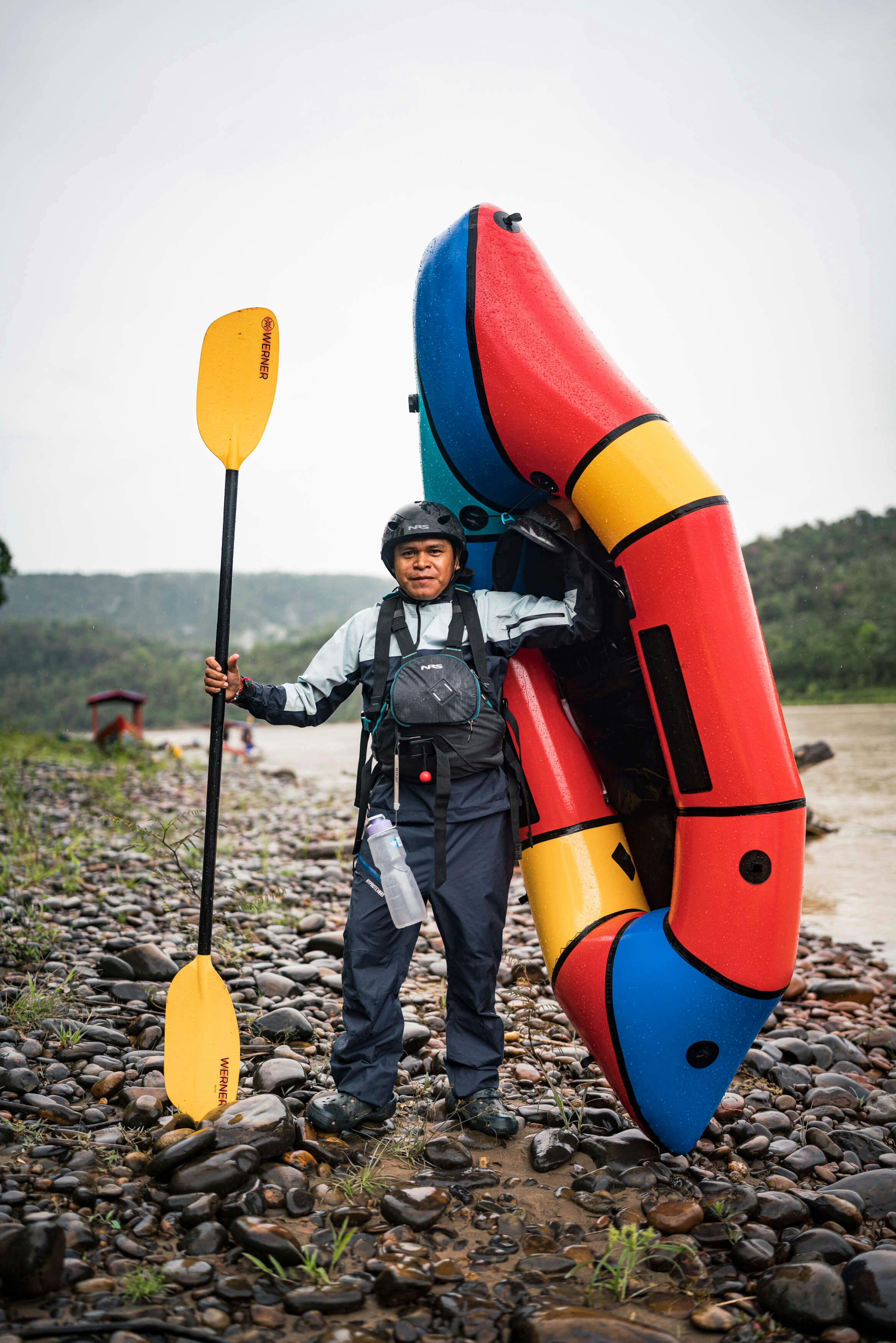Rios to Rivers: Guardians of Rivers and Life
Guardians of Rivers and Life
Story: Hayley Stuart | Photos: Felipe Zanotti and Paul Wilson
The new trailer for the upcoming short film “Guardians of Rivers and Life” follows the Amazonian River Exchange Program in October, 2022, a collaboration between local grassroots organization the Commonwealth of the Beni River Basin Indigenous Communities, Amazonian River Allies Bolivia, and nonprofit Ríos to Rivers. Check out the trailer below.
Rios to Rivers is doing amazing work. Alpacka Raft proudly supports this program and we're hoping to spread the word about this new film and the program in general.
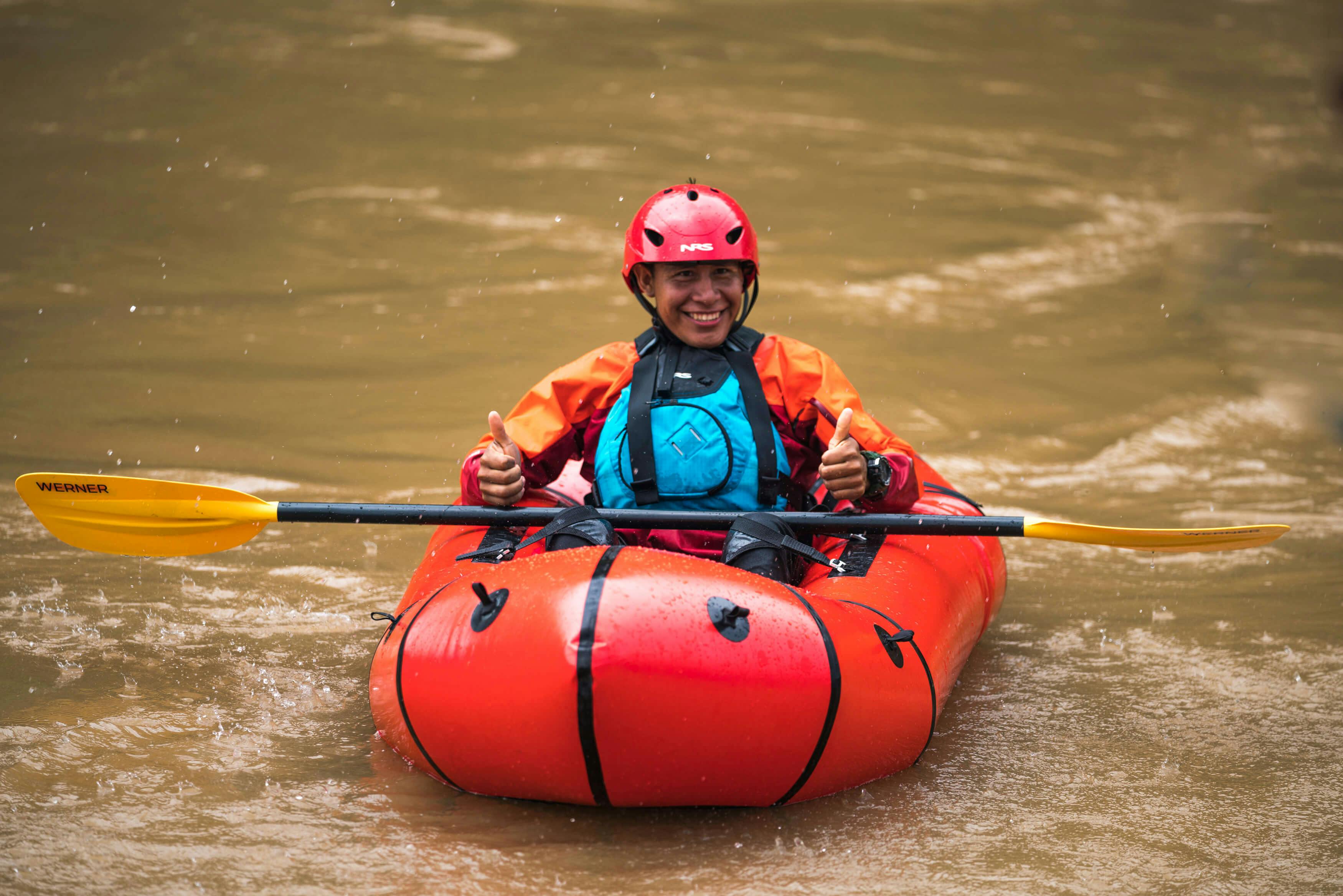
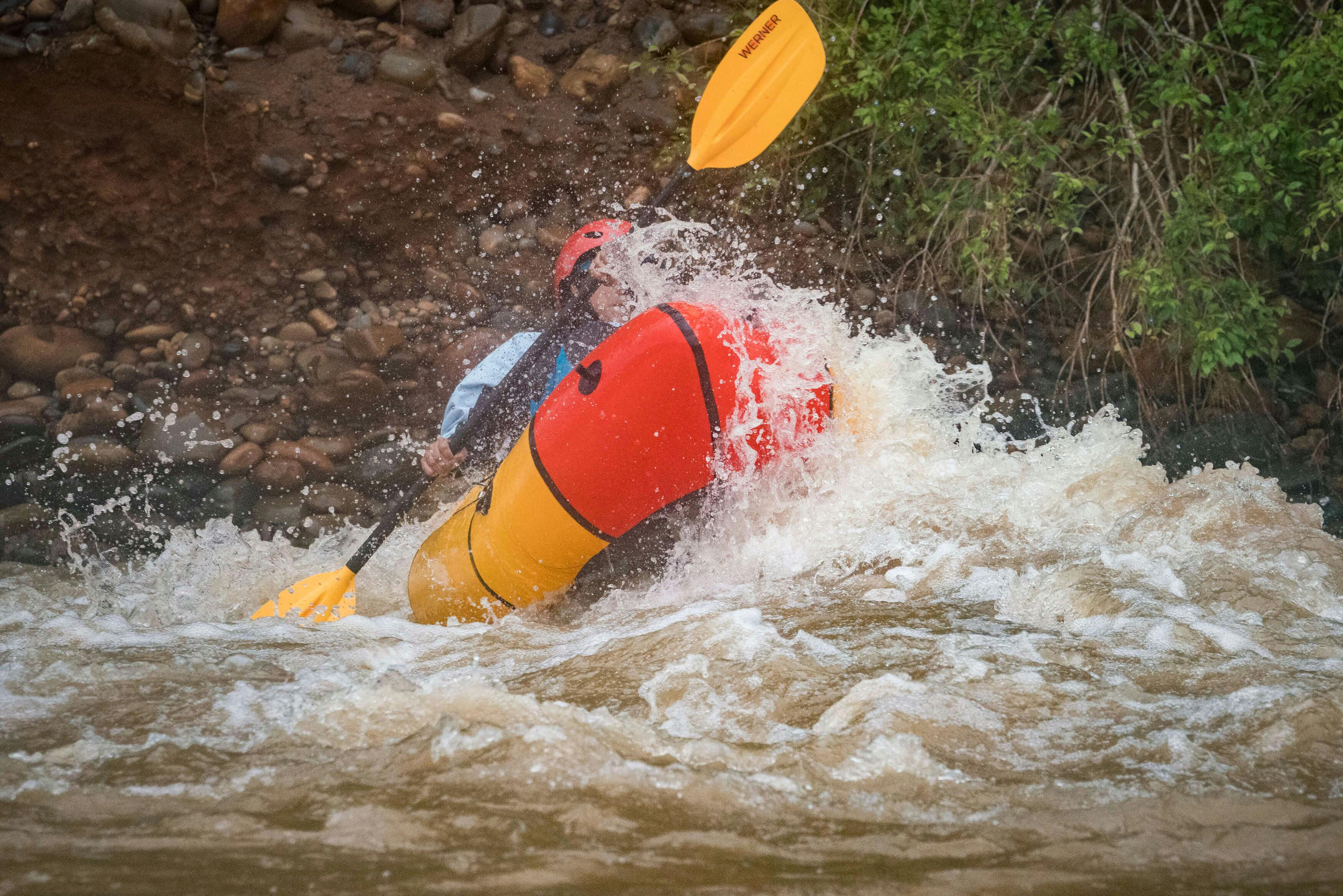
About the Program
The program seeks to use whitewater kayaking and cultural exchange as river conservation tools in one of the most threatened biodiversity hotspots in the world, the Beni River Basin in the Bolivian Amazon. There, a group of indigenous youth from nine communities from North and South America gather in solidarity to bear witness to the region's greatest threats, and learn from each others’ experiences. For three weeks the group traveled together throughout the basin. They began by descending via rafts, kayaks, and packrafts on an unforgettable and treacherous jungle river expedition on the Tuichi River, and ended by journeying upriver in motorized canoe to witness the gold mines that contaminate the sacred river with mercury and other poisons.
The program had three main objectives:
- To train whitewater kayaking and rafting skills and complete a river expedition on the Tuichi River,
- To build local communication skills in social media and documentary filmmaking,
- To build strong local youth leaders through stewardship and advocacy curriculums designed and delivered by indigenous river defenders.
The end goals of the program were to establish the first ever Bolivian paddle sports club, run by motivated and environmentally conscious local youths. The club would provide a safe, fun, and empowering way to access and enjoy these sacred rivers while promoting river conservation and awareness.
The group had three Alpaka Raft packrafts for this trip, some of the first crafts to be added to the Bolivian whitewater club fleet. Not only are packrafts easier to travel with than hardshell kayaks, they are more versatile and safer for beginner paddlers and in the jungle terrain. The park guards of Madidi National Park are excited to use these crafts to travel the park so they can better patrol for miners, loggers, and poachers.
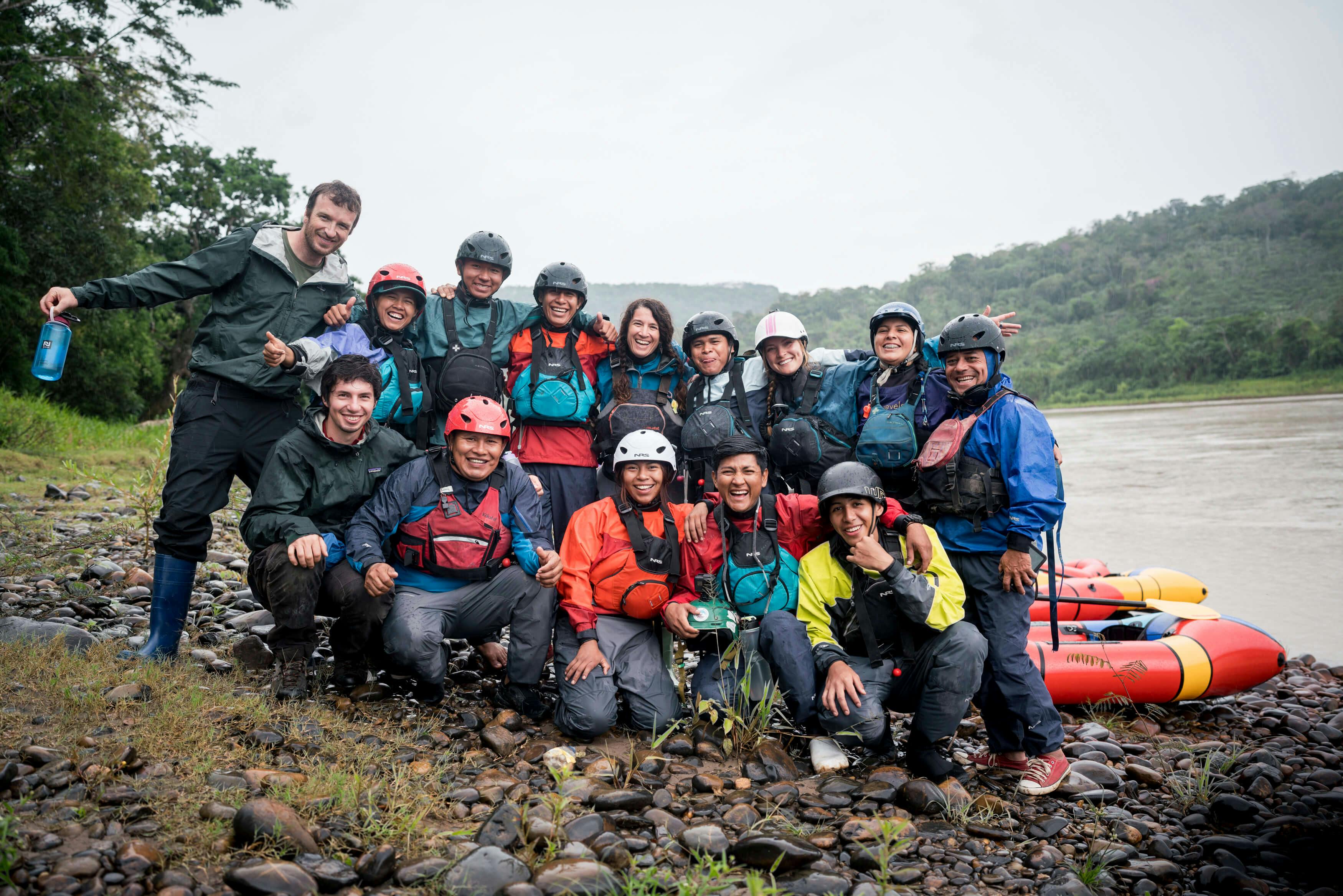
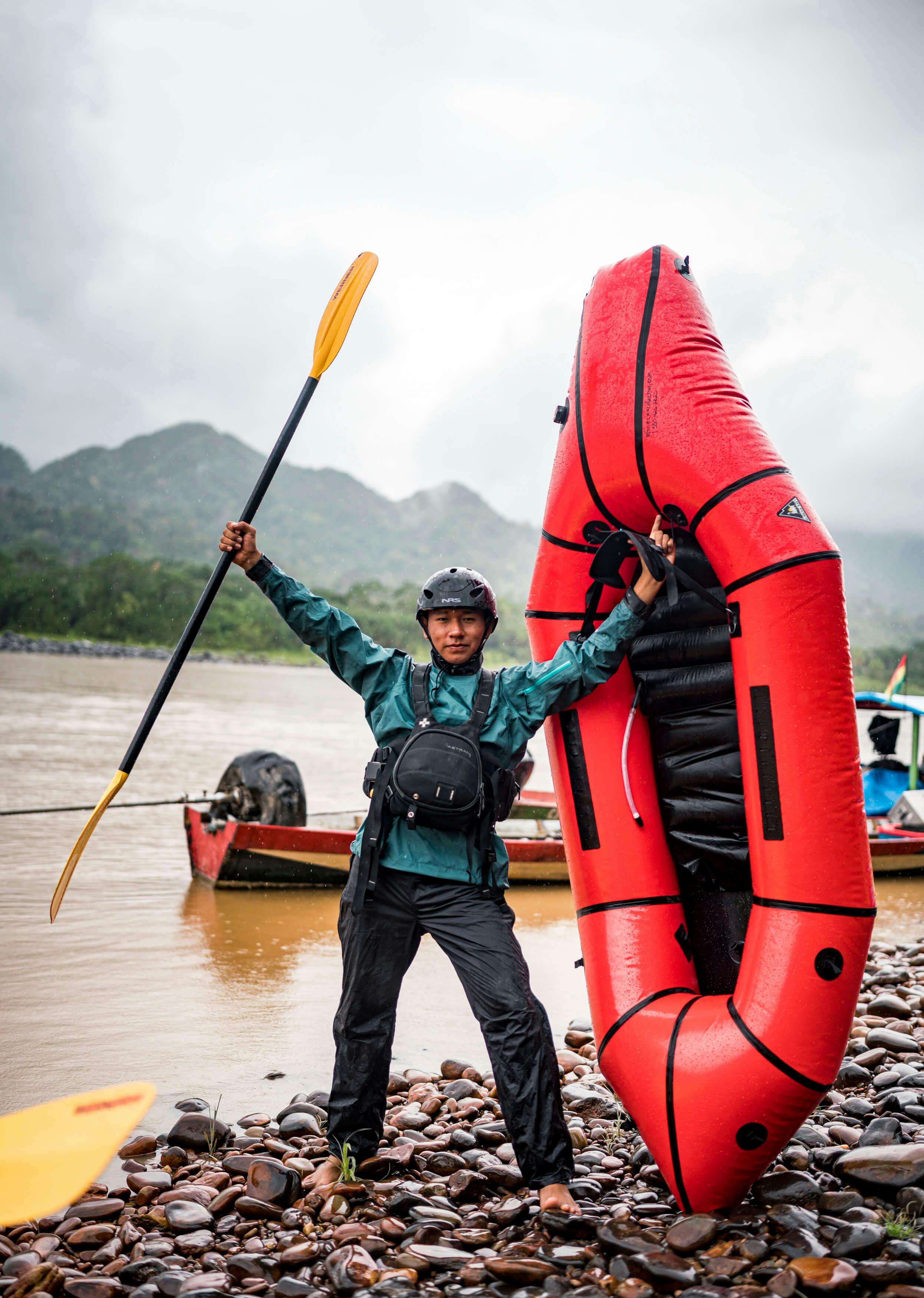
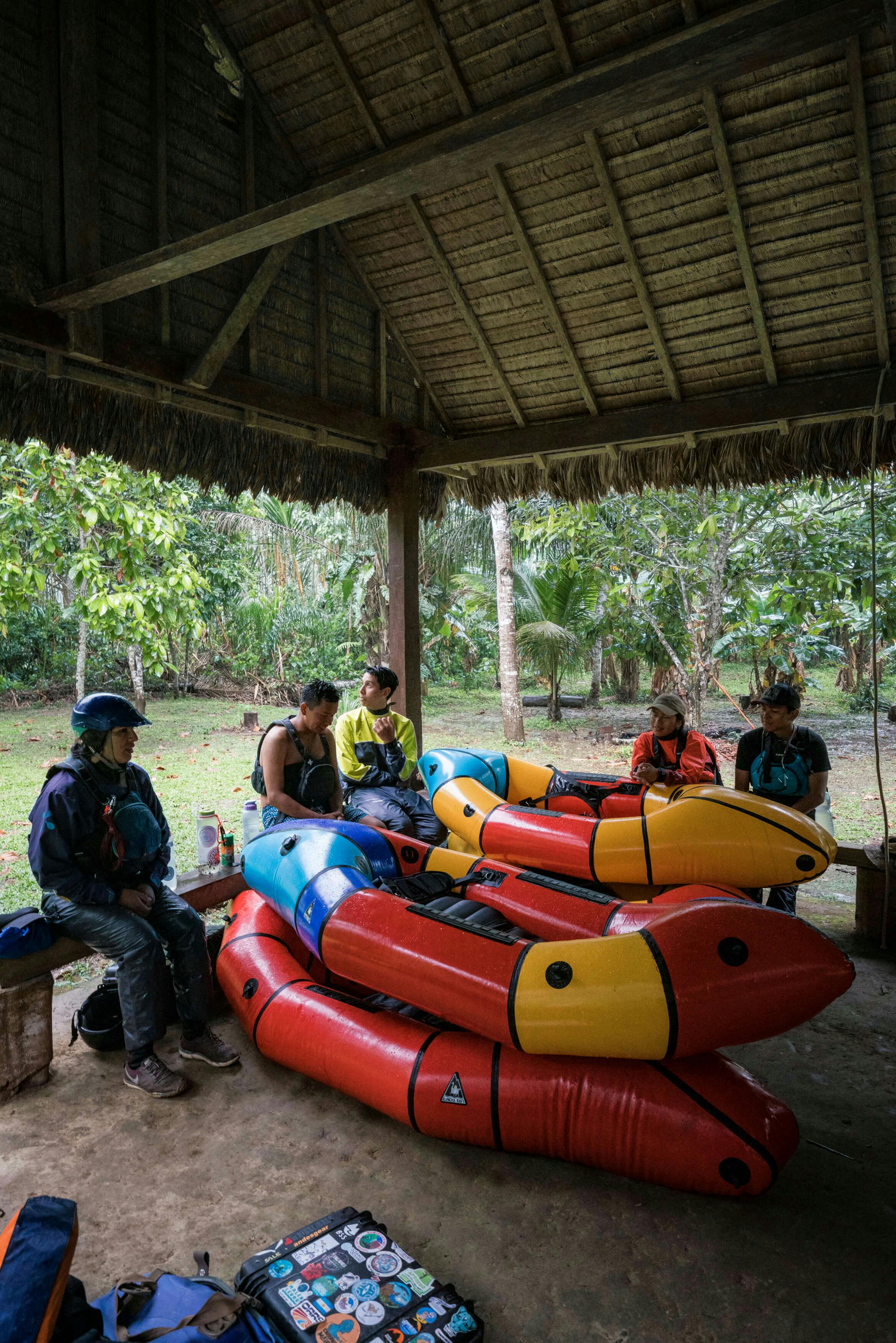
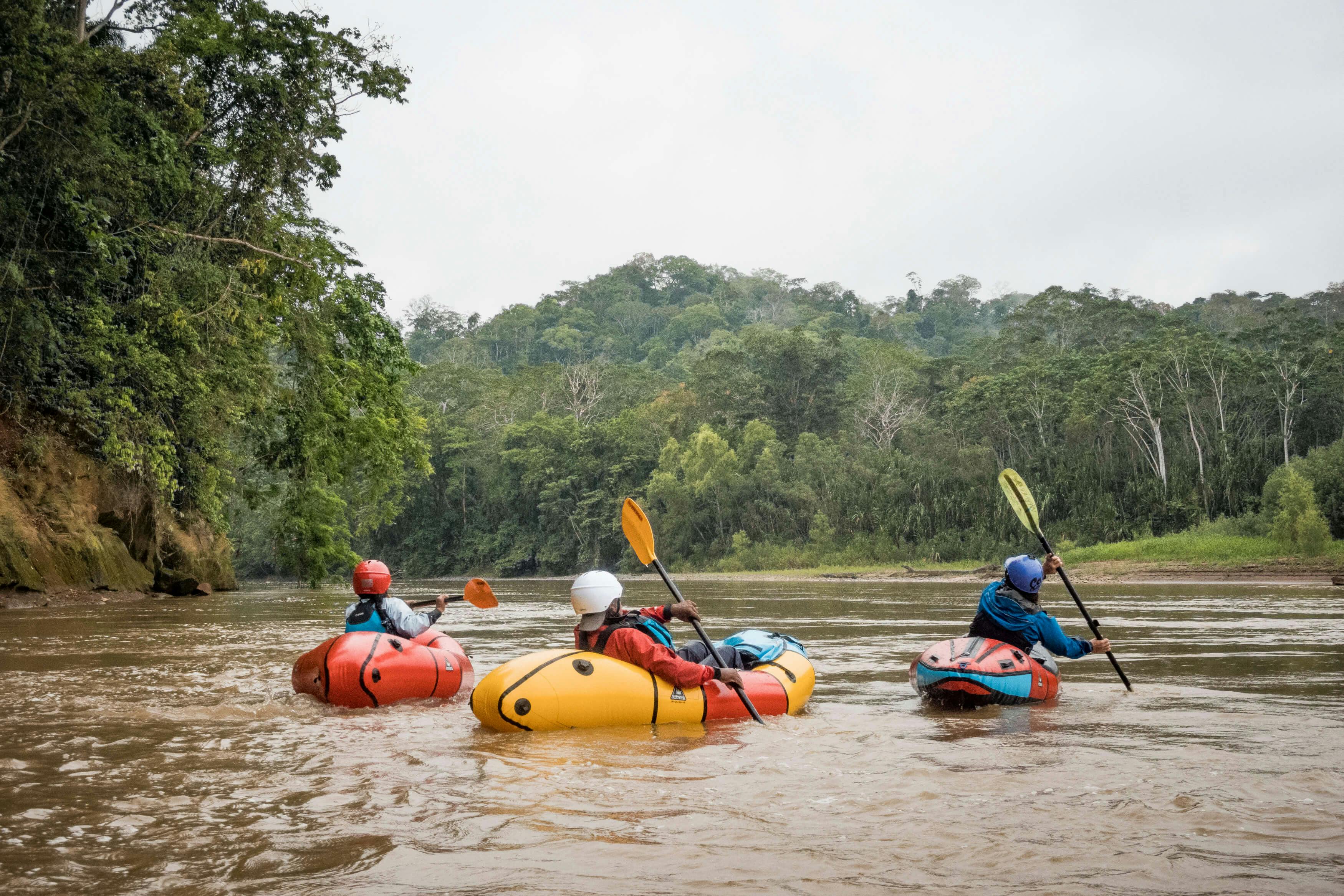
Why is this program SO important?
One of the number one ways to buffer the impacts of climate change is to protect biodiversity hotspots, especially the Amazon Rainforest. If built, the Chepete-Bala dam proposals would flood almost 800 squared kilometers of the Beni River Basin, including two national parks renown for their biodiversity: Madidi and Pilon Lajas National Parks. On top of these mega dam threats, gold mining operations have proliferated along the riverbanks in recent years, resulting in indigenous communities downstream having some of the highest levels of mercury-contamination in the world.
Ríos to Rivers believes that the first step toward creating healthy environments is to empower and become an ally to local indigenous communities, who have been the stewards of the land and rivers since time immemorial. The power of indigenous networking is valuable now more than ever. As communities from around the world have experienced the impacts of river alteration including mega-dam construction, they can share the lessons of their experiences to help bolster local knowledge, resilience and strength. Local communities can evoke enormous change, and often do so without any support. In 2016, indigenous river defenders and members of the Commonwealth of the Beni river Basin Communities halted the Chepete-Bala proposals, convincing the government to shelf the project due to its lack of environmental studies and failure to acquire prior and informed consent from the indigneous communities who own the surrounding territories. For three years the project was shelved until 2021, when the new government put it back on the table as a way to stimulate the economy after the pandemic. Now the elders look to a new generation to protect their constitutional rights to live and exist free of contamination in their own ancestral territory.
Building capacity in these ways requires ongoing programming, communication, and community-building. Ríos to Rivers is actively seeking funding support and collaboration to continue these important efforts.

